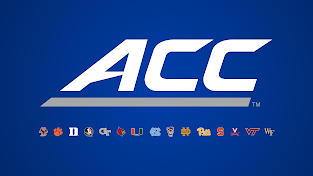ACC & Big 12 Approves new CFP Revenue Model
Are They ACCtually in Trouble?
Sage Rubin, Swish Tribune
Despite moving to 12 teams, the College Football Playoff is set to move to 14 teams in the coming years. However, this time, there is a twist: Both the SEC and the Big Ten conferences are set to take 58% of the generated revenue, while the ACC and Big 12 are set to take 32% of the revenue, leaving Notre Dame and the G5 to take the other 10% of revenue.
While this may seem like a no-brainer for the ACC and Big 12 as this ensures at least a somewhat large share of the pie in a world where we are beginning to see two power conferences emerge… this was a much more dangerous decision on the ACC’s end and here’s why.
FSU and the ACC are currently in a lengthy legal battle involving FSU trying to set themselves up for an exit from the ACC, citing that the conference has hampered their ability to compete with the competition. The most prominent example of this was the controversial College Football Playoff Selection Show that aired on December 3rd, 2023, in which the playoff committee essentially said that the ACC was not a power conference and their undefeated conference champion (FSU), would not get a playoff spot over what was apparent to be an above average Alabama team. While FSU made rumblings previously, this was the moment in which they decided that enough was enough and to take action against the ACC because of the further damage this playoff snub would cause in the world of recruiting and being able to compete with competition within the region such as UF, Alabama, LSU, Georgia, etc.
On the other hand, the ACC has consistently stated that FSU signed their grant of rights agreement and that they knew what they were getting into. They have also changed revenue models to promote wins by giving the most money to winning teams and the least to the losing teams. However, the conference's media deal is still insufficient to compete with the power 2. This argument, however, has clearly come to an end with this new playoff agreement. By agreeing to a revenue model that essentially says that the ACC is “lesser than” the power 2, FSU argues that the ACC is not putting the conference members in the best possible position to compete and succeed at the highest level of college athletics. Even though I’m not a lawyer, I do find it hard to believe a judge would side with the ACC after this agreement.
Overall, the damage has already been done, and FSU’s exit from the ACC is getting closer and closer to happening. In an ideal world, the ACC stays together and doesn’t expand, but that’s not possible in today’s world of college athletics. Soon, schools like FSU, Clemson, UNC, and Miami will be in either the SEC or Big Ten, leaving schools like UVA, Virginia Tech, Duke, Boston College, Wake Forest, Louisville, Pitt, NC State, and Syracuse behind with no chance to be genuinely competitive in the new age of the Power 2 as a result of their inability to have the TV markets the Big Ten and SEC want. The ACC didn’t do any favors for themselves as they just opened up the door for the biggest brands to leave.






Comments
Post a Comment